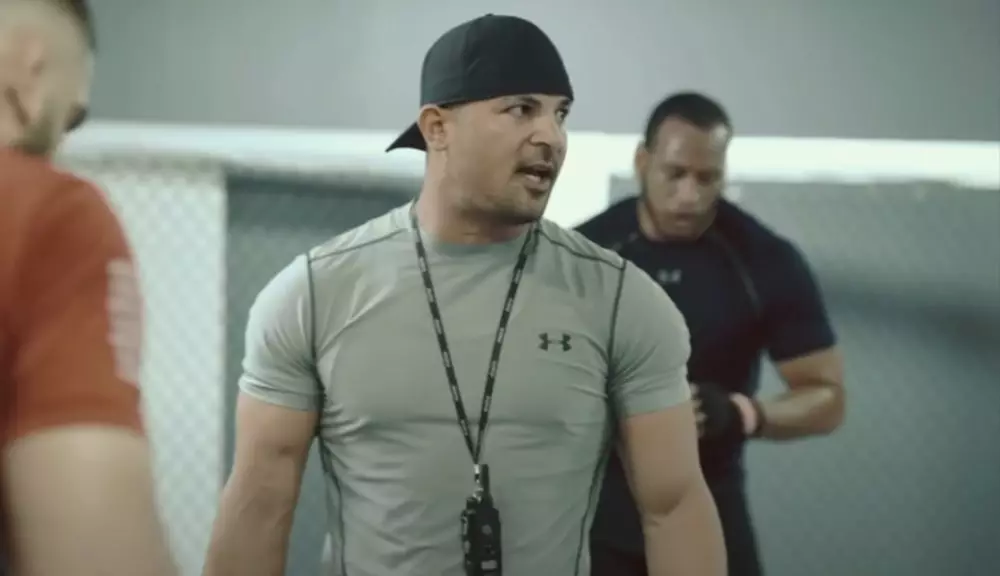Mixed Martial Arts (MMA) is an arena dominated by fighters, but often overlooked are the coaches who tirelessly mold these athletes into champions. Sayif Saud, the head coach at Fortis MMA, epitomizes this dedication, demonstrating the struggle between ambition and personal sacrifice. Approaching his 20th year in coaching, Saud stands at a pivotal crossroad, weighing the accolades of his career against the pressing demands of family life.
Since his initial coaching victory in September 2013 with Sean Spencer at UFC Fight Night 28, Saud has amassed an impressive 97 wins under the UFC banner. His establishment, Fortis MMA, has become a home base for numerous rising stars, including former UFC flyweight champion Brandon Moreno, who represents Saud’s first championship triumph. Throughout this journey, Saud has poured not only his skills but years of his life into the gym and the fighters he nurtures. The growth and success of Fortis MMA symbolize the realization of his dreams, a significant achievement in the competitive landscape of MMA coaching.
Yet, the road to success is not without its toll. Coaches like Saud often sacrifice personal time, traveling almost weekly and standing by their fighters during the chaos of fight week. This extensive commitment to athlete development and fight preparation is often unseen, contrasting sharply with the glitz surrounding championship bouts. As Saud closes in on a substantial milestone, he finds himself reconsidering the extent of his involvement in the sport and the balance of family life.
As he approaches the 100-win milestone, Saud reflects on the personal sacrifices made throughout his career. He has put forth a clear vision for his future: “100 UFC wins and I will be done,” he stated. The upcoming events of 2025, including matches featuring Diego Ferreira, Macy Chiasson, and Ryan Spann, could elevate him to this notable mark. However, with success comes contemplation; Saud finds himself at a point where he must evaluate what his post-coaching life will entail.
The idea of passing the torch to the next generation resonates deeply with Saud. He hopes to transition the responsibility of Fortis MMA to his fighters, fostering a legacy that inspires future coaches and athletes. Transforming the gym into a family legacy, where fighters who have grown under his guidance take over, encapsulates his vision for the future of Fortis MMA.
Despite his professional achievements, Saud feels the pull of family obligations more than ever. At 44, he has recognized that his children are growing up quickly, and he experiences a profound yearning to be more present in their lives. “I’ve missed my kids’ whole childhood,” he admitted, expressing the emotional dichotomy between his dedication to sport and the longing for familial connection. As the father of a teenage daughter excelling in volleyball, he grapples with the reality that his absence has left a gap in their formative years.
Saud’s evolving understanding of his priorities reveals a mature perspective on the nature of success. While he cherishes his experiences in the UFC and the accolades that accompany them, he increasingly questions whether personal fulfillment lies in professional accomplishments or in the simple joys of family life. This realization underscores a universal theme for many in high-stakes careers: the recognition that life’s most meaningful moments often lie outside the scope of professional ambition.
As he contemplates retirement, the question of what comes next looms large. Saud has expressed the desire to maintain a connection to Fortis MMA while stepping back from the grind of daily coaching. He envisions a future where he can still influence the gym’s direction but do so on his terms—popping in occasionally and enjoying a more flexible presence.
The legacy of Fortis MMA stands on foundations of dedication, resilience, and community. By fostering an environment that emphasizes organic growth and mentorship among fighters, Saud aims to create a sustainable model that could thrive independently of his everyday involvement. This perspective not only reflects his commitment to the gym but also his desire to contribute to the community of martial arts coaches and fighters that follow him.
Sayif Saud’s journey is a reminder that in the world of MMA, success often comes with personal costs. As he eyes the future, he balances the pursuit of professional milestones against the invaluable moments with his family, embodying the ongoing struggle between ambition and personal fulfillment. Through it all, his story serves as a testament to the unsung heroes of MMA—the coaches—who, despite their sacrifices, continue to build powerful legacies both in and out of the octagon.

